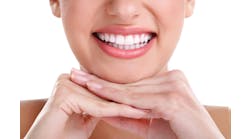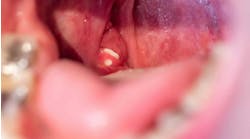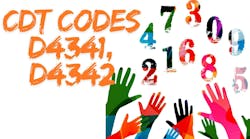by Lory Laughter, RDH, BS
[email protected]
Our profession is changing! Not a new concept, but one made very clear today as I browsed Web sites of dental hygiene associations. New Jersey recently passed local anesthetic administration for the dental hygienist — 20 years of hard work paid off. In July, California dental hygienists will be the first with our own regulatory board. Hygienists everywhere are daring to step beyond the control of organized dentistry and take a stand for patient care.
A passage from the Arizona State DHA reads, “On October 11, 2008, ASDHA became the first American dental or dental hygiene organization to endorse the preventive and therapeutic benefits of xylitol, joining the Finnish Dental Association, Swedish Dental Association, British Dental Association and many other national dental associations to endorse and recommend the use of xylitol for better oral health.”
Dental hygienists are willing to say we know what is good for oral and general health: A seemingly small statement that shows initiative and independent thinking.
Along with all the progress, our careers face the threat of attempts to introduce more on-the-job training and overlook our obvious abilities to deliver health-care services. A few states already live with the reality of scaling assistants. Others, like Arizona, are facing similar regulation changes. Organized dentistry refuses to acknowledge the dental hygienists' diagnostic skills — much less our ability to deliver preventive and basic emergency services. Instead, a less educated and minimally trained individual is being proposed to administer such care in areas where access to care is a problem.
When speaking to dental hygienists about the concerns facing our profession and the real threat that our services may soon be provided by trained — as opposed to educated — providers a common response is, “Not my dentist.”
Apparently, “my dentist” respects our education, recognizes our skills, and strongly supports our desire to gain independence from organized dentistry's restrictive controls. “My dentist” is an amazing individual who would never dream of hiring an on-the-job trained scaling assistant, no matter how much less salary he or she would have to pay.
Not every dentist recognizes the difference between an educated health care provider (RDH) and a trained person who performs a task (scaling assistant). Sadly, the public will not realize the distinction either.
In an effort to further drive home the idea that dental team members are not in control of their careers, organized dentistry is pushing the idea of allied membership in their organization for all dental professionals. A few assistants and hygienists are falling for the promise of cheap continuing education and more focus on patient care, but most see through the smoke screen. If state associations of the ADA can someday claim they represent the majority of hygienists and assistants, legislators and the public will assume we also agree with the concepts and regulations proposed by that organization. Good-bye independence; hello more restrictions and less opportunity to deliver patient care.
I have a proposal for those working with “my dentist.” Approach your employer and suggest membership in the ADHA for him or her. Our professional organization also offers allied membership and “my dentist” is the perfect candidate. Such a move would allow the dentist opportunities for discounted continuing education courses and access to online resources and journals. It would also show legislators, the public, and organized dentistry that “my dentist” does exist and supports the profession of dental hygiene.
Perhaps a radical suggestion, but if it is accepted practice for dentists to recruit membership in their organization from outside their profession, it should be no less acceptable for dental hygienists to do the same. Take the challenge and let me know your results. Remember the goose and the gander — it fits.





